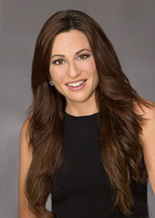Five Questions for: STEVE ZACK
The Miami trail lawyer was appointed by President Joe Biden to serve on the President's Advisory Committee on the Arts.


Steve Zack — the Miami trail lawyer who heads the Pro Bono Committee at Boies Schiller Flexner and is a member of the firm’s executive committee — was appointed by United States President Joe Biden to serve on the President’s Advisory Committee on the Arts. Established in 1958 by President Eisenhower, the committee serves as a national forum of civic and cultural leaders to serve as “Ambassadors for the Arts” in their own communities.
Zack, whose practice areas include federal multidistrict litigation, complex commercial litigation and voting rights, was nominated by President Barack Obama for the position of Alternate U.S. Representative to the 68th Session of the General Assembly of the United Nations. And he served as Senior Advisor to the United States State Department. He’s an invited member of the Council of Foreign Relations, regularly discussing crucial matters of international importance with world leaders.
After attending law school at the height of the civil rights movement in the U.S., Zack worked for Senator Claude Pepper, known for his progressive Liberalism, and later worked as general counsel to Bob Graham, the long-time Florida governor who pushed social and environmental reform while appealing to a working-class base.
Zack is Past President of the American Bar Association and was the first Hispanic American to assume the ABA Presidency. He was also the first Hispanic American and the youngest person to become President of the Florida Bar. He has served as President of the National Conference of Bar Presidents and as the Chair of the ABA’s House of Delegates–one of the nation’s most influential positions on matters relating to the legal profession. He is a Fellow of the International Academy of Trial Lawyers, and he received a Lifetime Achievement Award from the American Lawyer.
He sat down with SocialMiami’s editor Brett Graff to discuss strategies for success, the arts and diversity.
BG: What advice would you give to rising lawyers who want to be successful in their careers and make a difference – as you do – at a national level?
SZ: When I was president of The American Bar Association someone asked me what is necessary to be a good lawyer and I thought my answer was basic. But to be a good lawyer you have to be a good person. And to be a good person you have to be well-rounded. I am a trial lawyer and in most trials, morality plays a part in the law. I’ll give the same advice my father gave me: Find something you love. The ballet, the symphony or drama. If you like those areas get involved at any level. You have to start somewhere and the sooner you start the more people you know and the more active you become and the more likely you are to achieve your goals
BG: What inspired your interest in the arts?
SZ: I’m from the Kennedy generation, the arts were very important. Sometimes they get lost in the in morass of political issues that take up most of our time. We have to remember importance of our arts. Any great civilization focuses on the arts. This position on the President’s Committee involves making sure the Kennedy Center is well-funded. I remember when it was being built. Today it hosts more than 40 million people are year and serves our nation as a leader in arts education. To be a great society, we have to protect the arts.
BG: And as an Ambassador of the Arts in Miami?
SZ: I hope to fulfill that role. I think educating people about the future of the arts is extremely important. My daughter went to New World School of the Arts and I started to appreciate how important New World is the community and I want to do everything possible to facilitate that mission. To do that, you need a budget and you need a lot of publicity. People don’t even know what’s available. I came from Cuba in 1961 – I lived in Miami for 60 years — we have a lot of things going on. For the people in Miami, there are so many events they can attend, and we want to make sure they know about these events. Bringing the arts into schools as early as age as possible is also important.
BG: Is there anything the arts community needs to work toward?
SZ: I’m interested in insuring diversity within the arts. The concept of the “rainbow cast” is now prevalent on Broadway. I attend a lot of shows — both local and national performances — and to see the cast made up of many nationalities is very important. I just saw Six in New York and there was a diverse cast. I saw Hello Dolly staring Cab Calloway and there was a completely black cast. A classic example is Hamilton. George Washington isn’t originally black, but he is in the show. When I started going to shows that was not the case and today, there’s a serious effort.
BG: Are we making progress on that front in Miami?
SZ: One of my favorite quotes is this: Where you stand depends on where you sit. People looking at our diversity would say there are improvements to be made, but we’ve come a long way from when I moved to Miami in 1961. I have always believed Miami is poster child for future of America. It’s one-third Anglo, one-third Black, and one-third Hispanic. For many years, we didn’t get along but learned to respect each other. At one time Miami lacked a lot of cultural attributes but every day, it gets more international and more sophisticated.

Brett Graff is SocialMiami.com’s managing editor and has been a journalist covering money, people and power for over 20 years. Graff contributes to national media outlets including Reuters, Glamour, Harper’s Bazaar, Maxim, and the PBS show, Nightly Business Report. A former U.S. government economist, her nationally syndicated column The Home Economist is first published in The Miami Herald and then on the Tribune Content Agency, where it’s available to over 400 publications nationwide. She is broadcast weekly on two iHeartRadio news shows and is the author of “Not Buying It: Stop Overspending & Start Raising Happier, Healthier, More Successful Kids,” a parenting guide for people who might be tempted to buy their children the very obstacles they’re trying to avoid.


